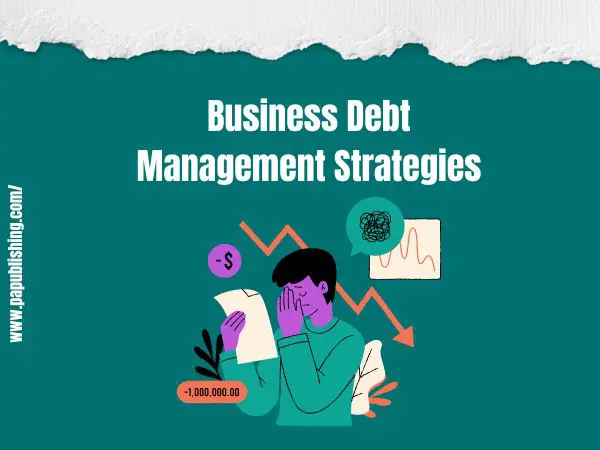6 Business Debt Management Strategies
Whether you’re experienced or new to the game, running a business is no walk in the park. However, handling debt is one of the biggest hurdles entrepreneurs face – making or breaking your financial future. Debts help you expand your business, but if mishandled, they quickly lead to big problems and hefty interest costs.
As your business grows, borrowing money becomes an inevitable part of the process. Let’s discuss the key business debt management strategies to make handling debt a breeze for you.
Top Strategies for Business Debt Management
Last year, Toyota topped the list of companies with the highest debt globally, holding up to $217 billion in liabilities. This shows that no matter how giant your venture is, there’s no getting around dealing with debt.
It’s a fact that no matter where you stand, your liabilities need regular attention. Here’s a list of top strategies for business debt management to manage the hassle and grow your business:
Prioritize Your Debt Payments
Figuring out which debts to tackle first makes a huge difference. Start by paying off high-interest debts, like credit cards or loans, to avoid stacking up interests over time.
Next, make sure to stay updated on loans backed by collateral to avoid losing your assets. Review all your outstanding liabilities, and pay off tax debts timely to avoid running into major issues.
Remember – some debts come with serious penalties for late payments. For instance, failing to pay employee benefits or taxes on time can result in hefty fines.
Manage Your Cash Flow Smartly
Whether your venture is struggling or making profits, managing cash flow eases up your strain of debt. To improve cash flow, start by optimizing your receivables and following up on overdue payments. Plus, keep track of unnecessary spending and build up cash reserves to handle maximum costs without additional borrowing.
Finally, review and cut costs where possible without impacting your business goals. With an improved cash flow, you can strengthen your financial position and scale your business.
Structure Debt Repayment Plan
A strategic debt repayment plan helps manage your debts smartly. Your plan should include how much you’ll pay each month, which debts to prioritize, and your timeline for paying off all the debts.
Set achievable goals that align with your venture’s cash flow, and knock out one debt repayment at a time. Regularly check your progress and tweak your plan as you get rid of your debts and improve your cash flow.
Negotiate with Creditors
If you’re struggling with repayments, a smart way out is negotiating terms with creditors about getting lower interest rates or extending payment terms. Luckily, most creditors will understand your position, especially if you have a debt repayment plan in place. This opens doors to better terms and eases up your financial strain.
Diversify Revenue Streams
One of the smartest debt management strategies for businesses is boosting your revenue to make repayments easier. For instance, add new products or services, improve your marketing, or optimize your SEO efforts to draw in more customers.
Tap into new markets to grow, and employ technology to improve operations – leading to improved sales. The more your revenue streams, the easier it is to fend off your debts before it’s too late!
Seek Professional Advice
While handling debt is no child’s play, seeking professional help is a smart way out. For example, accountants assist with crafting a wise debt repayment plan or identifying saving opportunities.
For an improved cash flow, turning to financial advisors can be your best bet. Plus, debt counselors assess your financial situation and offer advice entirely tailored to your financial situation.
Final Thoughts
Now that you know the effective business debt management strategies, it’s time to put them into action to improve your venture’s financial standing. Clearly understand your debts, prioritize payments, and negotiate better terms when possible. The goal isn’t just to repay debts but to use them to expand to new heights without burdening yourself!



